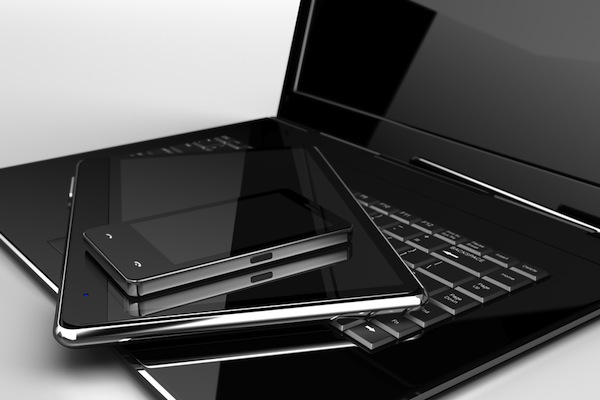
IT embraces bring your own device in corporate deployment, despite risks
While the bring-your-own-device phenomenon in IT presents a fair amount of risk to enterprise security, most companies are warming up to the idea anyway. A Cisco-sponsored survey of 600 IT and business leaders found that 95 percent of their companies allow employee-owned devices on the corporate network.
Of all companies surveyed, 36 percent support all BYOD devices, while 48 percent support a select list of devices. An additional 11 percent tolerate employee-owned devices on enterprise networks, but will offer no IT support.
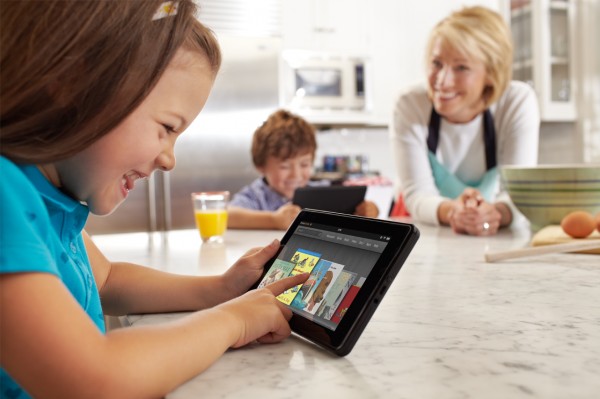
Kindle Fire sales are still hot
Wow, what a swirl of good-news/bad-news last week for the media tablets aimed at the ereader market. As it turns out, the roller-coaster ride continues this week.
comScore reported that the Kindle Fire from Amazon generated far more Internet activity in February than any other Android media tablet. Then a few days later, Microsoft dumped $300 million into a Barnes & Noble ebook venture, a move spurred in part by the success of the bookseller’s media tablet, the Nook Tablet.
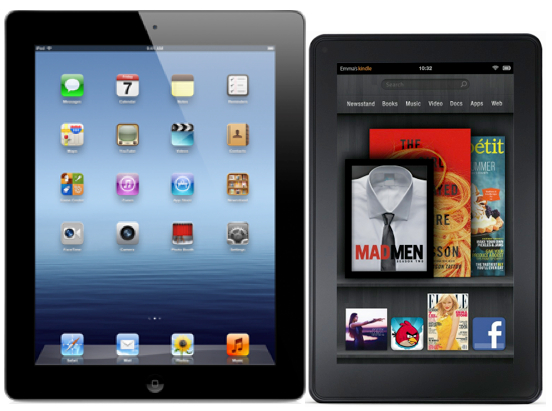
New iPad extinguishes Kindle Fire
Yesterday, colleague Ed Oswald gave four very good reasons why Target is dumping Amazon ereaders and tablets. For Kindle Fire, perhaps there is another: It's not selling. Today, IDC reports that Amazon tablet shipments collapsed during first quarter, all while iPad lapped them up.
"Apple reasserted its dominance in the market this quarter, driving huge shipment totals at a time when all but a few Android vendors saw their numbers drop precipitously after posting big gains during the holiday buying season" said Tom Mainelli, IDC research director. Apple's media tablet share rose to 68 percent from 54.7 percent during fourth quarter. Kindle Fire's shipments collapsed -- from 4.7 million to around 700,000 quarter on quarter. Amazon's share dropped from 16.8 percent to 4 percent, placing it third to Samsung.
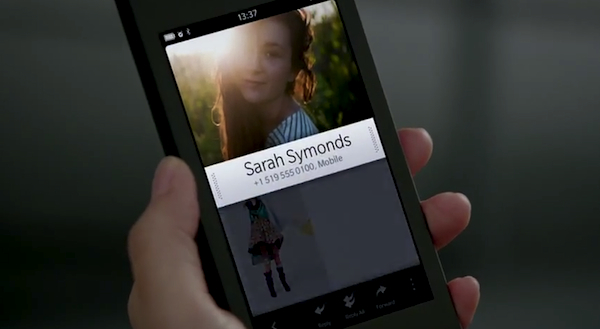
BlackBerry 10 breathes new life into RIM
Playbook, like so much about Research in Motion these days, is a crisis of faith. Do you believe RIM will finally get it right, or move away from BlackBerry? Months ago when the Playbook 2.0 update hit and leaks finally outed the keyboard/case thing and Blackberry London hardware, I believed in the tablet, BlackBerry 10 and RIM having a future. Or at least one last chance.
This week's BlackBerry World 2012 has renewed my confidence in RIM, and I would even say that they now have a very good chance to bounce back.

Why are Amazon Kindles vanishing from Target?
Target confirmed on Wednesday earlier reports that it is discontinuing sales of Amazon products, most notably the Kindle, starting in Spring 2012. First reported by The Verge overnight Wednesday, the move is a hit to Kindle's retail store strategy overall and effectively ends a long-term partnership between the two companies.
Amazon powered Target's website up until last year, and Target was the first to carry the Kindle at retail back in June 2010. The Kindle Fire was Target's best selling tablet on Black Friday last year, but that didn't stop the retailer from kicking Amazon to the curb.
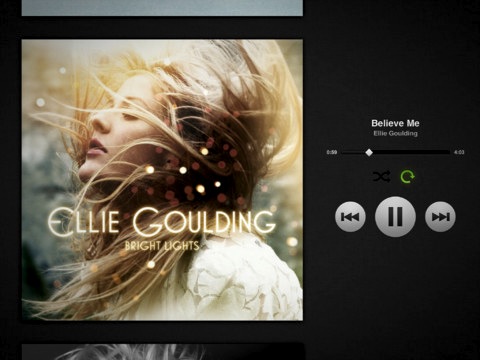
Spotify comes to iPad -- get it now!
Fans of Spotify need no longer endure a blown up app designed for the smaller screen of the iPhone, thanks to the release of a dedicate iPad version of the app, today. Spotify 0.5.0 has been a long time coming and, as you would expect, there is support for the Retina display of the new iPad. There has been a shift in focus with this release, as the app now makes it easy to discover new music rather than simply enabling you to listen to things you have already found.
The interface has been given a gesture-friendly overhaul and the screen is divided into two sections that allow for easy navigation of playlists, friends and news, while providing a clear display of the information you are looking for. The newly released app is comparable to its desktop counterpart, providing access to almost the same set of features, although there is no support for the likes of last.fm and other apps at the moment; this is likely to be something that is added in the future.
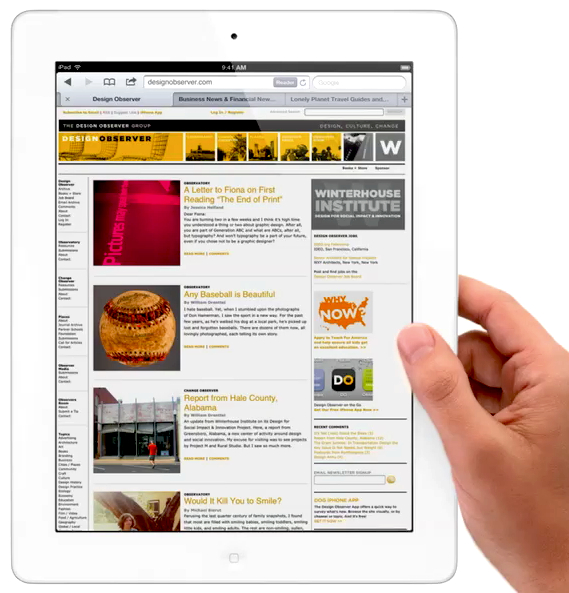
iPad leaps ahead of iPhone browser usage, Opera Mini collapses
New iPad tipped the mobile web browsing balance, according to April data Net Applications released today. Apple's tablet now exceeds iPhone for browser usage share among mobile devices. That's 33.7 percent to 27.4 percent, after being neck and neck for the previous three months. iPad had nudged in front during February and March, but in April leapt ahead of iPhone.
Considering how much larger is iPhone's install base, or Android's for that matter, iPad's ascension is quite remarkable. Cumulative iOS device shipments reached 365 million during first calendar quarter -- nearly 67 million of them iPads. In all, iOS devices give mobile Safari tremendous usage share in the category: 63.84 percent, that's up from 52.36 percent in June 2011.

Kindle Fire, Nook Tablet are better by design
The best-designed Android tablets you can buy today aren’t the sleekest or the sexiest. They’re not the most powerful. And they don’t boast the largest or brightest displays. What they do have, however, are sales. The tablets? The Kindle Fire from Amazon and Barnes & Nobles’ Nook Tablet.
On a runway awash with thin, pretty models, it’s easy to overlook this pair of plain Janes. But don’t. They are two of the top three largest-selling Android tablets on the market. And their formula should serve as a model for how to succeed in this market if you’re a supplier that’s lacking a throng of breathless fanatics aching to snap up anything you sell.

Microsoft, Barnes & Noble teach Apple and Amazon a lesson about educational ebooks
Nobody partners, or negotiates deals, like Microsoft. That's evident from today's stunning agreement with Barnes & Noble, which is sure to turn the ebook market on its head. The two will jointly invest in Newco, temporary name for ebook venture that incorporates B&N's digital and College business divisions. B&N gets partner in Microsoft, which invests $300 million, for 17.6 percent stake; both parties end ongoing patent disputes, largely related to Android; and Microsoft launches Windows 8 with native Nook Reader application. All around it's win-win, after losing a decade ago.
That's right, Barnes & Noble and Microsoft have been here before, in pioneering ebook ventures that failed. Both companies jumped on ebooks back when Amazon, which makes the popular Kindle, was still just a struggling Web 2.0 startup. Microsoft Reader led the first big ebook push at the turn of the century, and Barnes & Noble launched its original e-bookstore using the software. I bought my first ebooks there about 12 years ago. But by late 2003, it was over; Barnes & Noble gave up on ebooks -- a market later re-entered only after Amazon's Kindle success. Microsoft kept producing Reader software, but that's done, too, when the software retires on August 30.
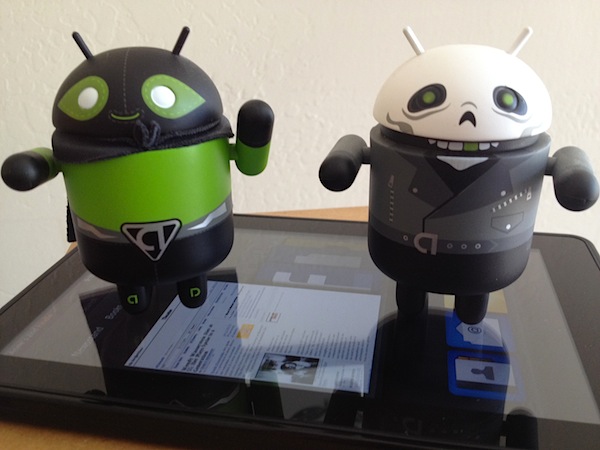
Google has lost control of Android
There was great news on the Android front this week. Samsung reported blow-out earnings, with smartphones -- the majority running Android -- accounting for nearly three-quarters of profits. Meanwhile comScore data spotlights the growing US Android tablet market. Additionally, Google started selling Galaxy Nexus direct, with no carrier contract, for $399. But all three share something in common -- what they foreshadow. Google has lost control of Android, and must swiftly act to regain it.
Forrester Research predicts that proprietary Android will surpass the Google Android ecosystem by 2015. Stated differently, Google's open-source mobile platform risks fracturing into multiple fatally fragmented Android ecosystems. Not one but many. There is little time for Google to demonstrate decisive leadership that can keep the ecosystem largely intact.
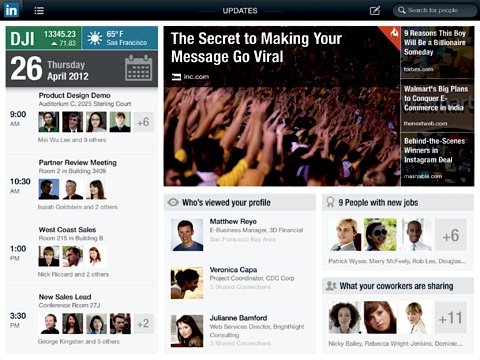
LinkedIn 5.0 for iOS supports iPad -- finally
Social networking news is not limited to the latest acquisitions by the likes of Facebook; LinkedIn, the social network for professionals, still generates headlines. The big news for iOS users: the app has moved to version 5.0 and heralds, amongst other things, the arrival of the universal version of the app; so with LinkedIn 5.0, iPad users finally get an app that enables them to tae advantage of their Retina display.
The iPhone version of the app had already come in for some praise, and the move to welcoming iPad owners to the folder looks set to head down the same path thanks to the great design that is prevalent through the interface. With tablet devices becoming increasingly common in the business world as tools of the trade, it’s good to see that apps are evolving to take this into account.
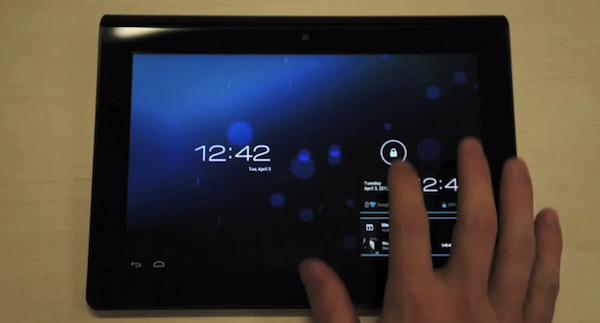
Sony serves some Ice Cream Sandwich to Tablet S
If you own Sony's Android tablet, the wait is over. Android 4.0 is available, starting today. The company says that users will be prompted to update the next time they connect to WiFi.
Sony's tablet packs one of the most customized versions of Android, from look and feel down to a plethora of apps, the majority focused on entertainment. Users can expect plenty of spit-and-polish tweaks and enhancements throughout its ICS iteration.

Microsoft enterprise licensing changes favor Windows RT, put Android and iOS in their place
If you can't beat them, manage them. It's a strategy that has worked well for Microsoft in the past, and it is emerging as a key element in announcements last week about how Microsoft will license Windows 8 in all its variations, including the x86 consumer, Professional and Enterprise editions, the embedded Windows RT and the cloud-based Windows Intune.
While Microsoft's primary goal is to stop Apple's growth in the enterprise, which it will do by tilting licensing policies in favor of Windows tablets, the company has a Plan B that will help monetize Apple and Android devices in the enterprise through management.
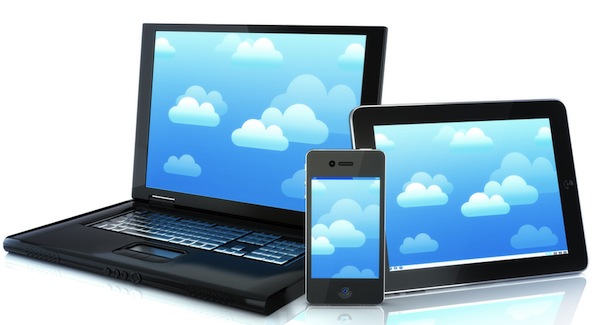
What is the most popular household gadget?
Surely it's no surprise that nearly nine out of 10 American adults owns a cell phone. But would you believe that 19 percent own an ebook reader or tablet? Or that one in five dosen't use the Internet? These are among the fascinating findings from a fresh Pew Internet report "Digital Differences".
The findings are a blueprint for understanding Americans' digital lifestyles and what gadgets -- and supporting products and services -- fit in where. Major tech companies create distinct digital lifestyles people buy into, which is particularly true for Apple, Dell, Google, Microsoft, Samsung and Sony among others. Apple, Google and Microsoft are in pitched lifestyle product competition, and should look to studies like this one to understand the stunning nuances connected, so-called post-PC devices bring to consumer behavior.
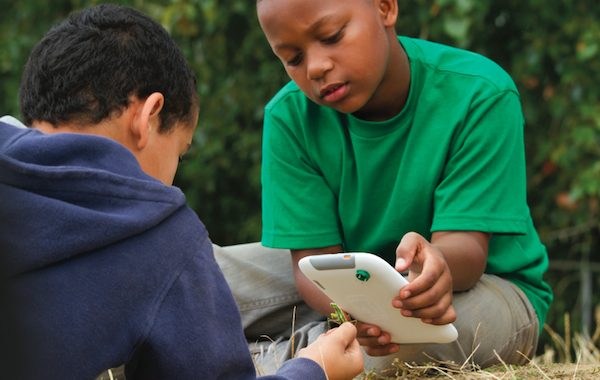
Intel's Studybook can be a success
Intel is putting more effort into their Atom CPU series, especially for the next generation of tablet computers. Along those lines, yesterday's Intel Studybook tablet is exciting. I really like the idea of this tablet. As the name implies, Studybook is a 7-inch tablet running Windows 7 or Android 3.x designed for students.
There is one challenge, though, and that is the Atom CPU, especially if such tablets use Windows instead of another operating system. So, is the Atom microprocessor up to the task?
